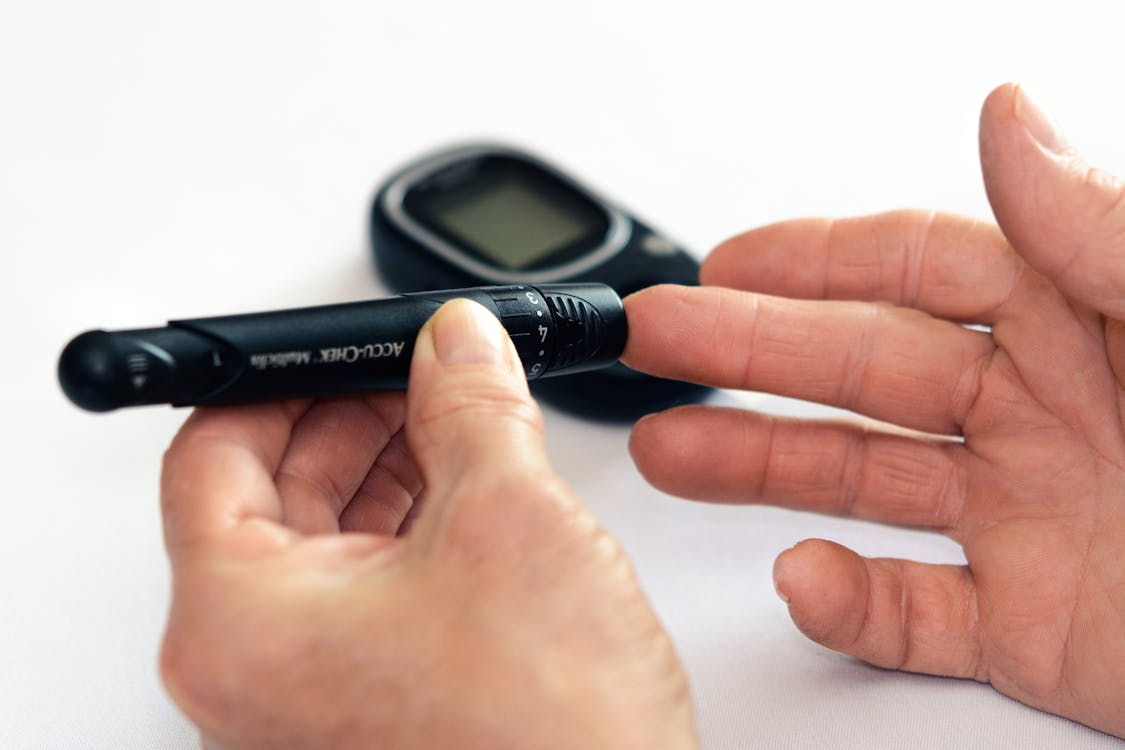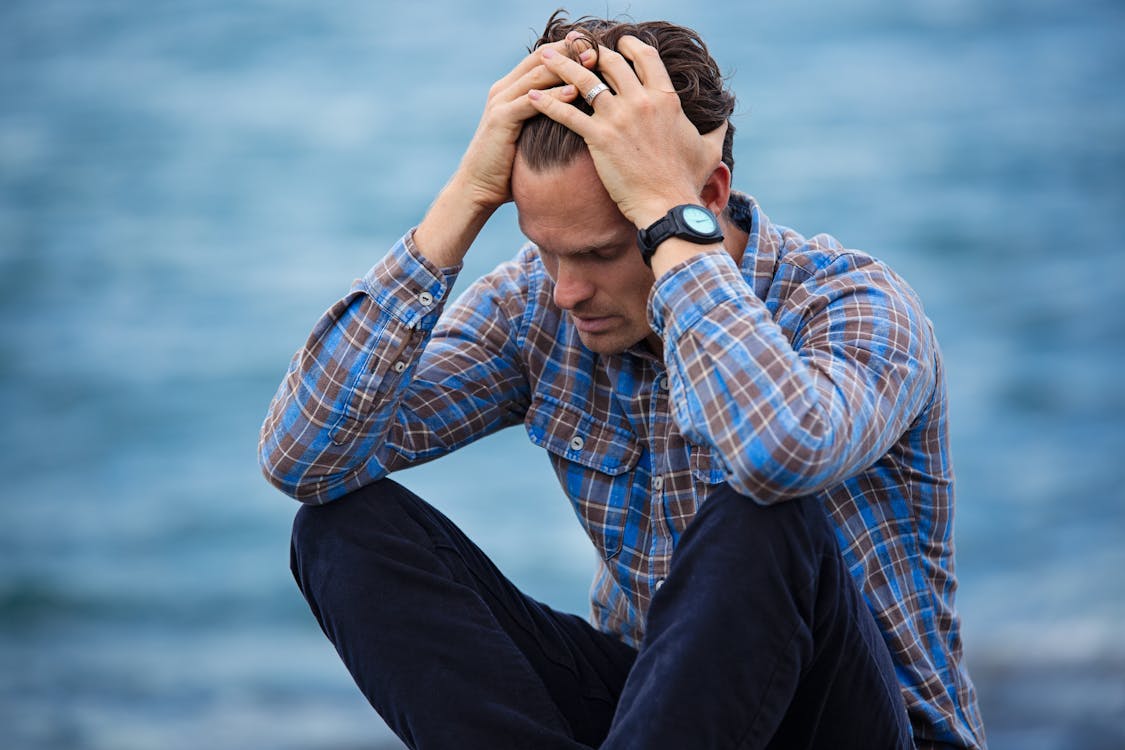COVID-19 has completely changed our world. Social distancing measures in an effort to slow the spread of the deadly virus have caused businesses to temporarily shut down. Many have lost their jobs. The effects have been incredibly far-reaching.
Still, medical experts say that such drastic measures are necessary to keep the death toll and infection rate from getting even worse. Adhering to social distancing measures is particularly important for individuals with underlying health conditions, who are more likely to develop severe symptoms or die as a result of contracting COVID-19.
Individuals with sleep apnea should be especially mindful of the risks posed by COVID-19. Many CPAP users would be considered high-risk, in part because of the additional health complications that so often result from sleep apnea.
This is part of what makes remaining compliant with CPAP therapy so important. By mitigating the effects of sleep apnea, you will be able to either avoid developing these conditions, or at least keep them from getting worse.
Here is a closer look at some of the health complications associated with untreated sleep apnea, and how compliance with CPAP treatment can protect you from COVID-19 and other serious concerns.
High Blood Pressure & Heart Disease

Unfortunately, these two conditions have a tendency to feed into each other. High blood pressure can actually worsen sleep apnea and other breathing complications. And of course, hypertension can also increase your risk for life-threatening events like a stroke or heart attack.
Hypertension’s impact is also particularly concerning in light of studies on COVID-19 comorbidities. A report in the American Journal of Hypertension found that hypertension was reported in 30 percent of fatal COVID-19 cases, as well as 27 percent of cases in which patients “developed the acute respiratory distress syndrome.”
While the report notes that hypertension is particularly common among elderly people, which may skew the results, hypertension was still the most common comorbidity of all underlying health conditions.
As the American College of Cardiology notes, “Research suggests that anywhere from 30–50 precent of patients with high blood pressure have sleep apnea. However, sleep apnea is much more common in patients with resistant hypertension, who have tried a variety of high blood pressure treatments but can’t get their condition under control. Resistant hypertension is a major public health issue, as uncontrolled high blood pressure can lead to serious complications. The good news is that treatment for sleep apnea may aid in lowering blood pressure levels.”
Thanks to its ability to partly counter hypertension, compliance with sleep apnea therapy won’t just help you potentially reduce your COVID-19 risk. It can help you decrease the likelihood of developing serious heart disease complications by helping lower blood pressure, even if previous medications have not been successful.
This could literally add years to your life.
Type 2 Diabetes
 The previously mentioned study listed hypertension as the leading comorbidity in COVID-19 cases. The second most-cited underlying health condition was diabetes. Diabetes was a comorbidity in 19 percent of fatal cases, as well as 19 percent of cases with severe respiratory complications.
The previously mentioned study listed hypertension as the leading comorbidity in COVID-19 cases. The second most-cited underlying health condition was diabetes. Diabetes was a comorbidity in 19 percent of fatal cases, as well as 19 percent of cases with severe respiratory complications.
Like hypertension, type 2 diabetes has been directly linked to untreated sleep apnea. As an in-depth report from the American Diabetes Association explains, “Obstructive sleep apnea (OSA) alters glucose metabolism, promotes insulin resistance, and is associated with development of type 2 diabetes. Obesity is a key moderator of the effect of OSA on type 2 diabetes. However, chronic exposure to intermittent hypoxia and other pathophysiological effects of OSA affect glucose metabolism directly, and treatment of OSA can improve glucose homeostasis.”
While age and obesity are common risk factors for type 2 diabetes, the report notes that sleep apnea increases one’s likelihood of developing diabetes regardless of these other issues.
At the same time, individuals who consistently used a CPAP machine had improved insulin sensitivity, making it an important part of controlling the condition (alongside weight loss).
Untreated sleep apnea is also a known contributor to weight gain, which can further increase the risk of developing type 2 diabetes. Excess fatigue can make you feel too tired to exercise. Disrupted hormone levels could also cause you to eat more unhealthy foods in an attempt to boost your energy levels.
Because weight gain often occurs around the neck, this can also worsen sleep apnea symptoms. The excess fat will close off your breathing passages more often, increasing the frequency of sleep apnea events. Using your CPAP machine will help you stay healthier and look your best.
Other Breathing Complications
 Individuals who already have other respiratory issues are considered to be among the most at-risk from the COVID-19 pandemic. By its very nature, sleep apnea is a breathing disorder. Sleep apnea literally describes a situation in which your breathing stops — typically because of an obstruction in the throat. These interruptions to breathing can last for upwards of 10 seconds, and individuals with severe OSA could experience several hundred interruptions to their breathing each night.
Individuals who already have other respiratory issues are considered to be among the most at-risk from the COVID-19 pandemic. By its very nature, sleep apnea is a breathing disorder. Sleep apnea literally describes a situation in which your breathing stops — typically because of an obstruction in the throat. These interruptions to breathing can last for upwards of 10 seconds, and individuals with severe OSA could experience several hundred interruptions to their breathing each night.
Though it is primarily viewed as a sleep disorder, sleep apnea can have a notable impact on other respiratory conditions.
One comprehensive review found that roughly 20 percent of sleep apnea patients also had chronic obstructive pulmonary disease (COPD), an incurable condition that obstructs airflow and causes shortness of breath and chronic coughing.
Sleep apnea has also been found to worsen asthma symptoms. As Daniel More, MD writes for verywellhealth, sleep apnea worsens asthma symptoms by causing acid reflux during sleep, increasing inflammatory chemicals in the bloodstream, and narrowing the airways. The increased inflammation and irritation ultimately worsens asthma symptoms, even in adults.
These respiratory conditions have both been directly cited as increasing one’s risk for severe COVID-19. As reported by WebMD, Dr. Albert Rizzo of the American Lung Association recommends, “It's crucial for people with chronic lung diseases such as asthma or chronic obstructive pulmonary disease (COPD) to keep taking their maintenance medications and tell their health care provider about any symptoms or changes in their health.”
For individuals with sleep apnea, remaining compliant with CPAP therapy is essential for mitigating the effects of these other respiratory conditions.
Mental Health
 One issue that is starting to gain more attention in the midst of the COVID-19 pandemic is how such situations affect many individuals’ mental health. While suffering from depression or anxiety won’t necessarily increase the risk of experiencing severe physical health outcomes from the virus, there is no denying that your mental wellbeing can make it harder to cope with the constant barrage of alarming news.
One issue that is starting to gain more attention in the midst of the COVID-19 pandemic is how such situations affect many individuals’ mental health. While suffering from depression or anxiety won’t necessarily increase the risk of experiencing severe physical health outcomes from the virus, there is no denying that your mental wellbeing can make it harder to cope with the constant barrage of alarming news.
Untreated sleep apnea can make the situation even worse. In fact, a 2019 study from the CDC found that sleep apnea to be strongly linked to major depression, regardless of other underlying factors. The more severe the sleep apnea, the more likely a person was to develop a major depressive disorder.
Even the lead study’s author, Anne G. Wheaton, PhD, was surprised with the outcome. In an interview with SleepFoundation.org, she said, “Snorting, gasping or stopping breathing while asleep was associated with nearly all depression symptoms, including feeling hopeless and feeling like a failure. We expected persons with sleep-disordered breathing to report trouble sleeping or sleeping too much, or feeling tired and having little energy, but not the other symptoms.”
Much of the trouble stems from the extreme fatigue that results from the constant interruptions to sleep caused by sleep apnea. When someone feels extremely tired throughout the day, it becomes harder to stay in a good mood. Individuals become irritable or have trouble focusing, which can make it harder to complete daily tasks. Relationships can grow worse.
An inability to think clearly or simply feeling exhausted can quickly drain your mental well-being. As depression and anxiety worsen, they can also contribute to other sleep disorders, like insomnia, making the fatigue even worse.
The combination of stress, fatigue, and irritability can create feelings of hopelessness — especially when watching news reports about COVID-19. Increased worry about your health or the financial consequences of business shutdowns can become overwhelming.
If sleep apnea is a contributing factor to your depression and anxiety, undergoing CPAP therapy can help relieve your symptoms. Other healthy habits, like exercising regularly and eating a balanced diet, can also help you sleep better and improve your mood.
In dealing with the current situation, it may also be helpful to take a break from the news. The latest news updates can add to your stress and worry, even if you are already following social distancing guidelines. Replace time on social media or following news updates with a favorite hobby or calling friends or family.
Using CPAP therapy and any other treatments recommended by your doctor, as well as taking a break from the constant flow of negative news, will help you better manage your mental health during this time.
CPAP Compliance in the Time of COVID-19
While continuing to use your CPAP machine is essential for mitigating the serious health consequences of sleep apnea, you must be mindful of how you use your device during this time. Some reports indicate that a CPAP machine could actually circulate the COVID-19 virus in the air if you or another household member were to get sick.
Because of this, it is best to consult with your doctor if you are worried about your health or that of your loved ones. Some potential solutions could be to sleep in a separate bedroom, or to temporarily stop treatment if a household member becomes sick.
Remember, everyone’s situation is different, and your doctor — who knows you best — will be able to provide the most qualified input regarding what you should or should not do concerning CPAP use and sleep apnea therapy. Regardless of current changes to your routine, following usage recommendations for your CPAP machine will be your best option for enjoying lasting health.
Naturally, no one wants to go without needed medical supplies during these troubling times. At Help Medical Supples, we continue to offer discounted prices on many CPAP machines, masks, and other supplies, while also providing free shipping on all orders over $89.
While some products are currently sold out, many are still in stock. We are striving to fulfill orders as quickly as possible. You can also contact us to receive more information about when we can expect more shipments of out-of-stock items.
The COVID-19 pandemic will eventually pass. Your need to manage your sleep apnea will not. By making an effort to stay compliant with your CPAP therapy, you can avoid serious side effects and enjoy a longer, healthier life.

